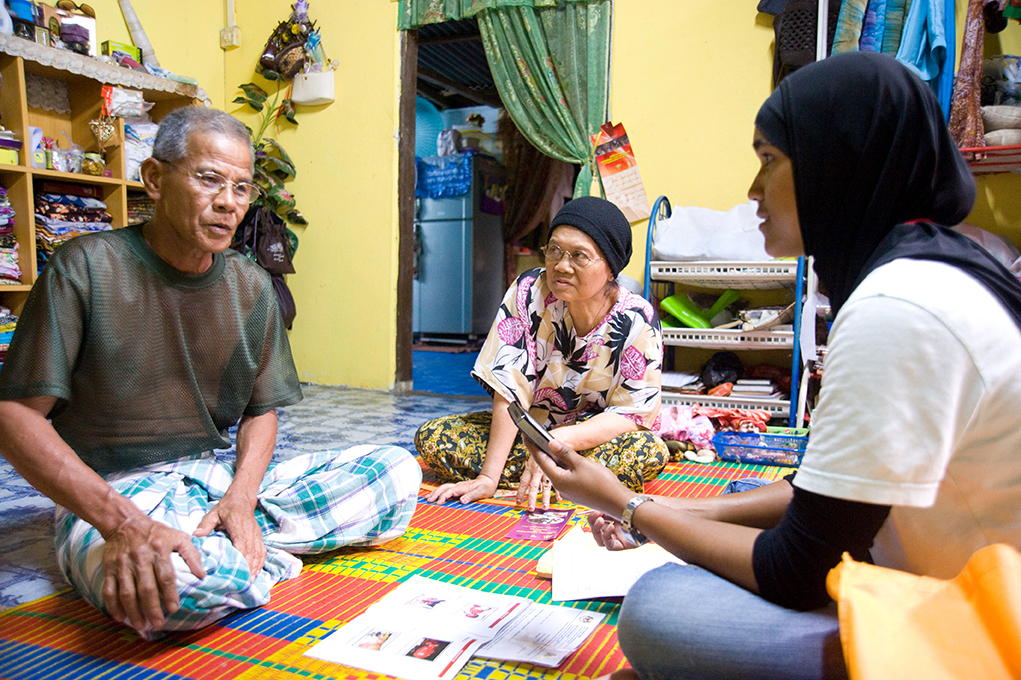You are here
Monitoring the Global Tobacco Epidemic
 Tobacco use is the leading cause of preventable disease and death worldwide. More than eight million people die each year due to tobacco related illnesses, including one million non-smokers from second-hand smoke. According to the World Health Organization (WHO), nearly 80 percent of the world’s 1.3 billion smokers live in low- and middle-income countries. Robust monitoring helps countries tailor best practices to combat the epidemic.
Tobacco use is the leading cause of preventable disease and death worldwide. More than eight million people die each year due to tobacco related illnesses, including one million non-smokers from second-hand smoke. According to the World Health Organization (WHO), nearly 80 percent of the world’s 1.3 billion smokers live in low- and middle-income countries. Robust monitoring helps countries tailor best practices to combat the epidemic.
Expanding CDC’s Global Tobacco Surveillance System
The Global Tobacco Surveillance System (GTSS), comprised of the Global Adult Tobacco Survey (GATS), the Global Youth Tobacco Survey (GYTS), Tobacco Questions for Surveys (TQS) and Tobacco Questions for Surveys for Youth (TQS-Youth) provides globally standardized data to track adult and youth tobacco use prevalence and trends across the world. The CDC Foundation supports the work of the United States Centers for Disease Control and Prevention (CDC), WHO and other international partners in implementing select components of GTSS.
GATS is the global standard to systematically monitor adult tobacco use and track key tobacco indicators through a nationally representative household survey of adults aged 15 years of age or older. The survey is intended to generate comparable data within and across countries and enhances a country's capacity to design, implement and evaluate tobacco control interventions. The data collected through GATS covers approximately 4.0 billion adults (15 years and older) and nearly 70 percent of the world’s adult smoking population.
To promote global comparability of adult tobacco use data, TQS and TQS-Youth were developed to provide countries with a standard set of tobacco use questions for inclusion in ongoing national and sub-national surveys. TQS is a subset of survey questions taken from the GATS core questionnaire, and TQS-Youth is a subset of survey questions from the GYTS core questionnaire that can be integrated into surveys to promote data comparability within and across countries over time.
In addition to funding, the CDC Foundation provides logistical and programmatic support including managing contracts and procurement, convening subject matter experts and partners, working with WHO and CDC to support survey implementation and helping operationalize CDC’s vision for global tobacco surveillance.
Helping CDC Build tobacco Control Capacity
To strengthen country-level capacity to use GTSS data to inform tobacco control research, policies and programs, the CDC Foundation supports CDC by developing new training tools, supporting research partnerships, implementing skill-building trainings and developing mentorship programs. For example, Data to Action workshops help countries use GTSS data to inform tobacco control policies and generate an evidence base for advancing tobacco control policies, programs and research.
GTSS Funding Support
- The Bloomberg Initiative to Reduce Tobacco Use, with grants from Bloomberg Philanthropies, supports GATS and TQS globally.
- Select countries have self-funded GTSS surveys or provided in-kind support.
- Bloomberg Philanthropies
- Campaign for Tobacco Free Kids
- CDC's National Center for Chronic Disease Prevention and Health Promotion, Office on Smoking and Health, Global Tobacco Control Branch
- Johns Hopkins Bloomberg School of Public Health
- The Union
- University of Illinois at Chicago
- Vital Strategies
- World Health Organization
- Afghanistan
- Armenia
- Argentina
- Azerbaijan
- Bangladesh
- Brazil
- Bhutan
- China
- Costa Rica
- Czech Republic
- Ecuador
- Egypt
- Georgia
- Greece
- Guatemala
- Guyana
- Croatia
- Hungary
- Indonesia
- India
- Kyrgyzstan
- Cambodia
- Kazakhstan
- Lebanon
- Sri Lanka
- Lesotho
- Morocco
- Myanmar
- Mexico
- Malaysia
- Niger
- Nigeria
- Nepal
- Panama
- Philippines
- Pakistan
- Poland
- Romania
- Russian Federation
- Slovenia
- Slovakia
- Sierra Leone
- Thailand
- Tajikistan
- Timor-Leste
- Turkmenistan
- Turkey
- Ukraine
- Uruguay
- Uzbekistan
- Viet Nam
- South Africa
- Zambia